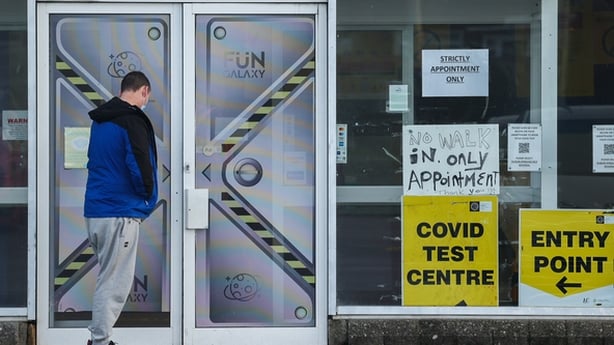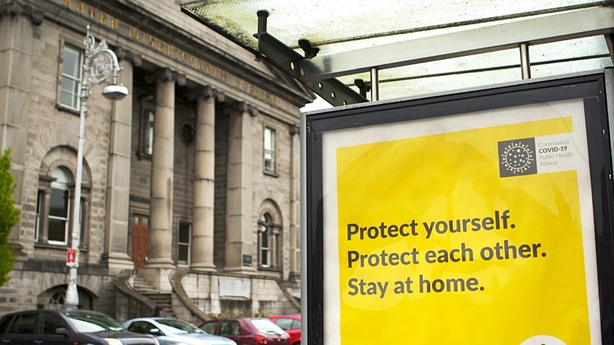A former member of the National Public Health Emergency Team has said that Ireland imposed measures during the Covid-19 pandemic that excessively limited basic freedoms.
Professor Martin Cormican, Professor of Bacteriology, School of Medicine, University of Galway, said that the approach taken here depended too much on fear to influence behaviour and that many of the foundations of rational infection prevention and control were undermined.
His remarks were made in a closed meeting of the Irish Society of Clinical Microbiology in Dublin on 21 October but were not published at the time.
In his paper to the meeting, Prof Cormican said that Ireland focused too much on short-term data, like case numbers and mortality that excessively limited basic freedoms for too long and caused collateral damage to people's health and wellbeing, in particular people who were vulnerable and disadvantaged.
He believed the ban on visits to nursing homes and the decision to close schools long-term were wrong.
Prof Cormican said that vaccination was the outstanding measure that reduced deaths from Covid-19 and he believed it would have been more straightforward to opt for mandatory vaccination for international travel.
When he was on NPHET, Prof Cormican was Clinical Lead on Infection Prevention for the HSE and he opposed some measures at the time.

'Lessons must be learnt'
The Tánaiste has said an evaluation of the Government's handling of the Covid pandemic is needed and lessons must be learnt from the way in which the crisis was handled.
In terms of limiting the numbers of lives lost and compared to global macro-figures, "Ireland did well", Micheál Martin said.
However, he acknowledged that many families suffered significantly during the pandemic and said it is important that all voices are heard during any review.
This evaluation should take place within the year, he said.
'His own personal evidence of what happened'
A member of the Covid-19 Advisory Group, Dr Anne Moore, School of Biochemistry & Cell Biology at University College Cork, said that Prof Cormican had given his own personal evidence of what happened.
She said that at the time there was a lot of fear everywhere, even among experts in the field and fear of the unknown.
Dr Moore said that Ireland had not seen a virus as fast and as deadly as that in most peoples' lifetimes.
She said that she did not think NPHET brought any more fear into the equation.
She said a lot depends on what part of the response and what part of the pandemic was being talked about and she agreed with some of Prof Cormican's points but not with others.
She disagreed with his point on mandatory vaccination.
Dr Moore said that it was important to use Prof Cormican's information, and information from others and learn lessons, so that any mistakes do not happen again.

A 'template' for the next pandemic
Labour TD Duncan Smith, party spokesperson on Health and member of the Special Committee on Covid-19 Response has told RTÉ's News at One that an inquiry into Ireland's handling of the pandemic is needed to form a template to prepare for the next pandemic or into the future.
He said that Prof Cormican's comments will inspire much reaction, but the reason a public inquiry is needed is that without one, there will be more newspaper articles, academic journals and articles about "what we did or didn't do".
On NPHET, he said it was a "quite an opaque committee.. and he "didn't entirely know how decisions were being made". He said this calls to question whether NPHET was the right model to deal with the crisis, and this needed to be teased out in a public inquiry.
He said that the closure of schools and Ireland's whole approach to education was a key strand throughout the entire pandemic but that the fundamental principles of decision making was to save lives and to protect our health service from being absolutely overrun.
He added: "If we are ever to have to go through this again and don't have a template to draw from, all we will have are articles like this which isn't a good template for us to learn from to do things better in the future."






